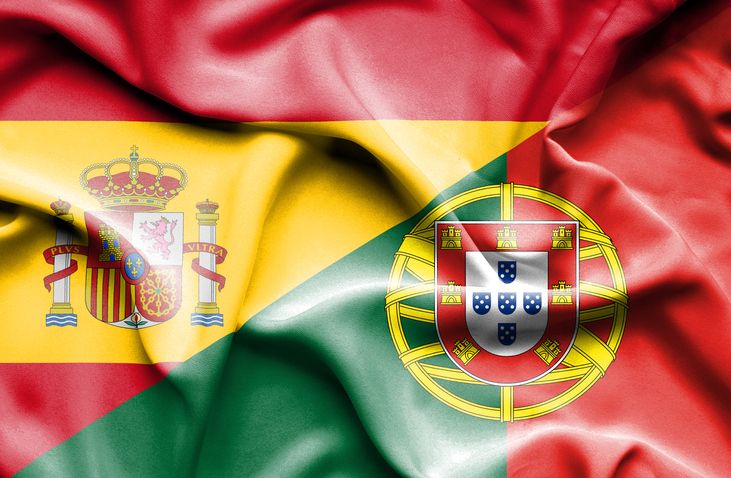Iberian fund selectors went against the grain in Q1 this year – by increasing their sentiment towards US equities compared to the market consensus but were still twice as likely to sell the asset class than buy it. In addition, they like European equities and emerging market debt – and are neutral towards Japanese equities, according to Last Word Research.
Overall, Iberian fund selector macroeconomic sentiment dropped a bit during Q1, compared to the previous quarter. Seventy percent of Spanish selectors are optimistic about the general economy, and the rest were neutral. However, almost all Portuguese selectors are positive.
US equities
Iberian fund selector sentiment towards US equities witnessed an uptick because of structural reforms and a feeling that inflation was under control, according to a Lisbon-based fund selector.
BBVA portfolio manager Luis Sancho told Expert Investor that he was positive on equity markets in Europe, Japan, and that there were opportunities in the US despite stretched valuations.
According to Last Word Research 4% more Iberian fund selectors during the first quarter of 2018 said they intended to buy US equity funds, compared to the previous quarter.
[visualizer id=”6987″]
Source: Last Word Research
Despite this rise in sentiment, the asset class for Iberians still sat in negative territory with 30% intending on selling these funds, 50% to hold, 14% to buy, and 6% did not use it.
Of the two countries, Spanish selectors were more positive on US equities compared to their Portuguese peers with the number of selectors intending to buy creeping up.
[visualizer id=”6988″]
Source: Last Word Research
“Valuations in the US are quite stretched, however President Trump’s structural reforms are a good thing for the economy and will allow positive revisions in earnings. This has also contained the problem of inflation.” Sancho said. “The tech sector has also been performing quite well.”
European equities
European equities for Iberian fund selectors has remained highly positive with 50% intending to buy over the 12 months to March 2019, 44% to hold, and 6% to decrease, according to Last Word Research.
[visualizer id=”6990″]
Source: Last Word Research
[visualizer id=”6989″]
Source: Last Word Research
Sancho said he was interested in the European financial sector despite negative interest rates.
“I believe that when Europe’s central banks end QE and lift interest rates the margin in banks could improve a lot,” he said.
The Iberians were much more positive on European equities with 34% of pan-European selectors intending to buy, 48% to hold, 16% of decrease, and 2% did not use the asset class.
Sancho said he liked Schroder’s International Selection Fund Euro Equity C Accumulation NAV fund as it invested in “solid European companies that had a capacity to generate good cash flows over time and had barriers to entry”.
According to FE Analytics, the fund returned 17.9% over the three years to April 2018. The fund currently has its largest holdings in industrials (18.4%), basic materials (18.37%), and consumer products (18.1%). See performance graph below.
Emerging market debt
Iberian fund selectors are also positive on emerging market government bonds with 56% looking to hold over the 12 months to March 2019, 23% to buy, 8% to sell, and 13% did not use the asset class.
Sancho said while there were not as many opportunities in emerging market debt as there were a year ago there were still pockets of prospects.
“Brazil’s economy is growing and it is undertaking some structural reforms in terms of pensions. Its current deficits are reducing as oil is booming,” he said. “Investors can also look to Mexico as I think there are valuations that can be gained in this area especially after NAFTA negotiations.”
US, Canadian, and Mexican officials have been meeting this month to reform the existing North American Free Trade Agreement (NAFTA).
Sancho noted that the noise surrounding Iran would dissipate and not affect emerging market growth.
“President Trump’s rhetoric around Iran and North Korea is to boost his own electoral base in the US because there are midterm elections coming up and he must make sure that the Republicans keep their majority. It is more speech than act.” he said.
Sancho said Argentina’s sky rocketing interest rates – which hit 40% this month – was an isolated problem and said he believed that the issue would be addressed properly in the near future.
“The only big emerging market country I’m not positive about is Turkey due to their autocratic government and their relationship with Europe and the world,” he said.
Sancho said he was short in duration and liked Franklin Templeton’s Global Total Return H1 Accumulation fund that returned 2.21% over the three years to 30 April 2018, according to FE Analytics. See performance graph below.
“I think this fund exploits quite well in global terms and has a significant position in emerging markets, that applies perfectly well to our portfolio,” he said.
Currently, the fund’s largest geographic holdings are in Mexico (17.1%), Brazil (14.5%), India (11.1%), and Indonesia (10.26%).
Japanese equities
Last Word Research found that Iberian selectors held neutral sentiment towards Japanese equity funds with 55% looking to hold over the year to March 2019, 16% to increase, 6% to decrease, and 24% did not use them.
Sancho is positive on Japan as he believes it is quite cheap compared to other developed countries and while he does not have any active funds he uses iShares’ MSCI Japan euro hedged Ucits ETF that tracks the Nikkei on a hedged basis.
“We are satisfied with the returns of this broad ETF and perhaps in the future we will look to an active thematic fund,” he said.
Over the three years to 30 April 2018 the fund returned 8.07%, according to FE Analytics.
[visualizer id=”6973″]
Source: FE Analytics







